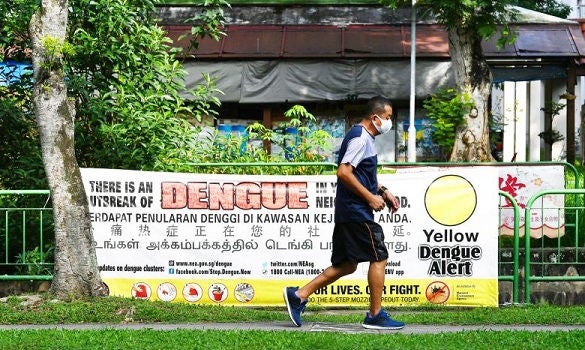HealthXchange will NEVER ask you to transfer money over a call. If in doubt, call the 24/7 ScamShield helpline at 1799, or visit the ScamShield website at www.scamshield.gov.sg.

The NEA said: "The number of dengue cases this year is expected to exceed the 15,998 cases reported in 2019, and may even surpass the 22,170 cases reported in 2013."
There are now 176 active dengue clusters, the biggest at Woodleigh with 181 people infected. Several factors contribute to the huge increase in dengue infections. One is the change in the dominant dengue serotype to DenV-3, which was last dominant about 30 years ago. This means that few people have immunity against it. There are four dengue serotypes and people are immune against only the type they have previously been infected with. Second, the months of May to September are warmer, allowing mosquitoes to breed more easily. And third, with the circuit breaker to control the Covid-19 pandemic in Singapore, more people are staying home.
Professor Ooi Eng Eong, deputy director of the emerging infectious diseases programme at Duke-NUS Medical School, agreed that the circuit breaker could have added to the dengue outbreak. "Aedes mosquitoes are active in seeking blood meals during the daytime and more people spending time at home instead of at work... could have led to the increased rates of infection."
Get the Health Buddy App
© 2025 SingHealth Group. All Rights Reserved.













 Get it on Google Play
Get it on Google Play